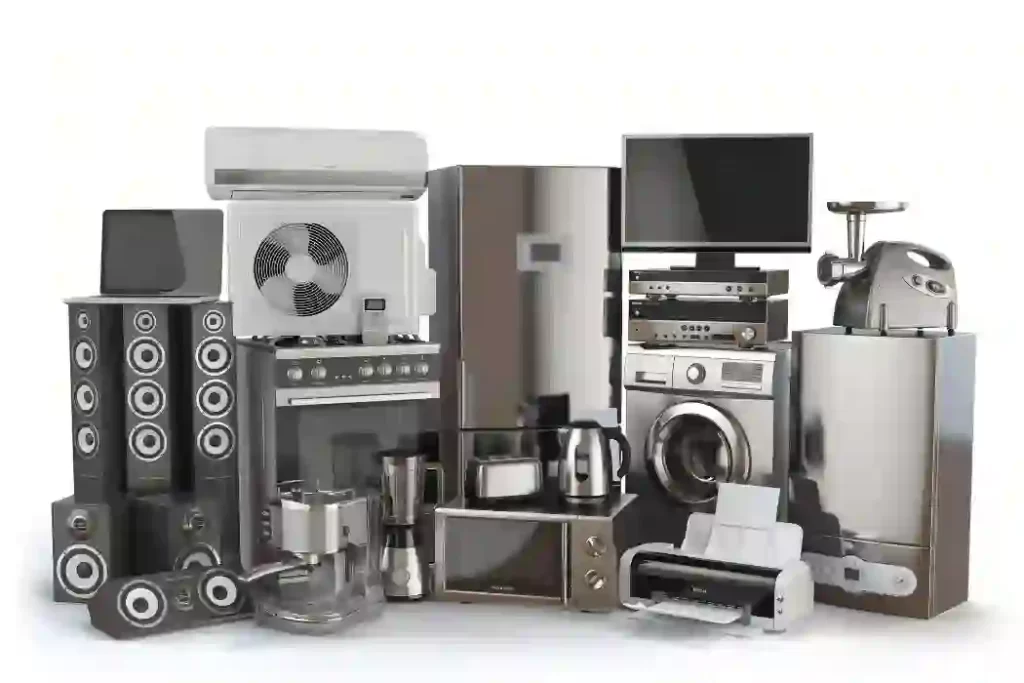Maintaining your home appliances is essential to keep them functioning optimally and extend their lifespan. Proper maintenance can also help you save money in the long run by reducing repair costs and preventing premature replacements. However, not everyone knows how to maintain their appliances properly, and some may even inadvertently damage them. In this article, we will outline the dos and don’ts of maintaining your home appliances to help you keep them in tip-top shape.
DOs:
Read the user manual
Before using any new appliance, make sure to read the user manual thoroughly. The manual contains important information on how to operate and maintain the appliance properly. It also provides safety instructions that you need to follow to avoid accidents or damage to the appliance.
Clean the appliance regularly
Cleaning your appliances regularly is essential to prevent the buildup of dirt, dust, and debris, which can affect their performance and cause them to malfunction. Follow the cleaning instructions in the user manual and use the appropriate cleaning agents to avoid damaging the appliance. For example, you should use a non-abrasive cleaner for stainless steel appliances to avoid scratching the surface.
Check and replace filters
Most appliances such as air conditioners, vacuum cleaners, and refrigerators have filters that need to be checked and replaced regularly. Dirty or clogged filters can affect the applicant’s performance and increase energy consumption. Check the user manual for the recommended filter replacement schedule and follow it strictly.
Home renovation often involves upgrading home appliances to enhance functionality and aesthetics.

Inspect hoses and connections
Hoses and connections are critical components of appliances such as washing machines and dishwashers. Check them regularly for signs of wear and tear, such as cracks, leaks, or bulges. If you notice any damage, replace the affected part immediately to prevent water damage or accidents.
Keep appliances away from heat sources
Some appliances, such as refrigerators and air conditioners, are designed to dissipate heat to keep the internal components cool. However, placing them near heat sources such as ovens, stoves, or heaters can interfere with their performance and cause them to malfunction. Keep these appliances away from heat sources and ensure adequate ventilation to prevent overheating.
Use the appropriate power supply
Appliances are designed to work with specific power supplies, such as voltage and frequency. Using the wrong power supply can damage the appliance and pose a safety hazard. Make sure to check the user manual for the appropriate power supply specifications and ensure that the outlet is grounded correctly.
Schedule professional maintenance
Some appliances require professional maintenance to keep them functioning optimally. For example, air conditioners need to be serviced annually to clean the coils, replace filters, and check the refrigerant level. Contact a qualified technician to schedule professional maintenance for your appliances regularly.
DON’Ts:
Overload appliances
Overloading appliances such as washing machines and dishwashers can cause them to malfunction and damage their internal components. Always follow the manufacturer’s recommendations for load size and avoid overloading the appliance.
Use the wrong cleaning agents
Using the wrong cleaning agents can damage the appliance’s surface or internal components. For example, using abrasive cleaners on stainless steel appliances can scratch the surface and cause rusting. Always use the appropriate cleaning agents recommended by the manufacturer.
Ignore warning signs
Most appliances have warning signs such as strange noises, leaks, or error codes. Ignoring these signs can lead to further damage and expensive repairs. If you notice any warning signs, stop using the appliance immediately and contact a qualified technician for repair or maintenance.
Neglect regular maintenance
Regular maintenance is critical to keep appliances functioning optimally and prevent premature replacements. Neglecting regular maintenance can lead to reduced efficiency, increased energy consumption, and higher repair costs. Follow the user manual’s recommendations for regular maintenance and schedule professional maintenance when necessary.
Use the appliance for unintended purposes
Using an appliance for unintended purposes can damage the appliance and pose a safety hazard. For example, using a hair dryer to dry clothes or using a microwave to sterilize medical equipment can cause fires or electric shocks. Always use the appliance for its intended purpose only.
Force the appliance to work
Forcing an appliance to work when it is not functioning correctly can cause further damage and lead to costly repairs. If you notice any malfunctioning signs such as strange noises or vibrations, stop using the appliance immediately and contact a qualified technician for repair.
Neglect safety precautions
Appliances such as ovens, stoves, and heaters pose a safety hazard if not used properly. Neglecting safety precautions such as keeping flammable materials away from heat sources or using protective gloves when handling hot surfaces can cause fires or injuries. Always follow the safety instructions in the user manual to avoid accidents.
Delay repairs
Delaying repairs can lead to further damage and increase repair costs. If you notice any malfunctioning signs, such as strange noises or leaks, contact a qualified technician for repair immediately. Prompt repairs can help you save money in the long run by preventing more extensive damage or premature replacements.
Conclusion
Maintaining your home appliances is essential to keep them functioning optimally and extend their lifespan. Proper maintenance can help you save money in the long run by reducing repair costs and preventing premature replacements. To maintain your appliances properly, follow the dos and don’ts outlined in this article. Always read the user manual before using any new appliance and follow the recommended cleaning and maintenance schedules. Check and replace filters regularly, inspect hoses and connections for signs of wear and tear, and keep appliances away from heat sources. Use the appropriate power supply, schedule professional maintenance, avoid overloading appliances, and never use an appliance for unintended purposes. Lastly, always follow safety precautions, do not delay repairs, and never ignore warning signs. By following these guidelines, you can keep your appliances in tip-top shape and enjoy their benefits for many years to come.

